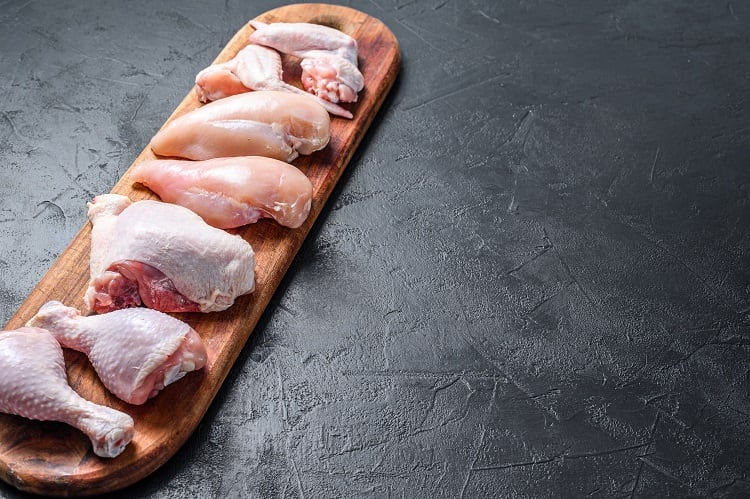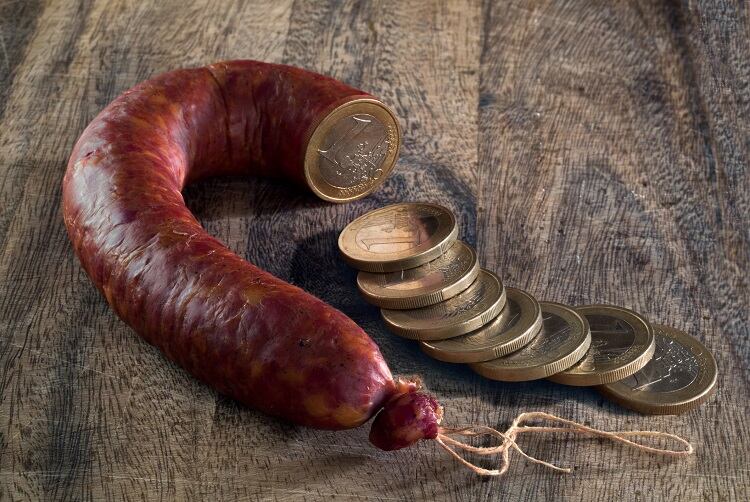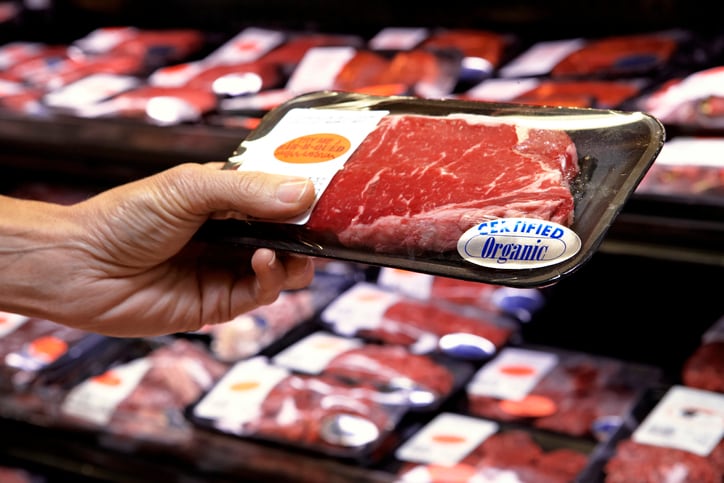The European Commission is keen to find out, having awarded a multi-million-euro Horizon 2020 research grant to the mEATquality project, headed up by Wageningen Livestock Research’s Hans Spoolder.
Chicken and pork focus
The €6m mEATquality project will investigate links between improved animal welfare and higher quality broiler meat and pork. The decision to concentrate on these two meats, rather than beef, was deliberate.
The European Commission was specific in its objective to identify what elements of extensive environments are thought to improve product quality, explained project lead Spoolder. To answer this question, his team wants to ‘create the greatest contrast’, which means focusing on ‘very intensively kept animals vs very extensively kept animals’.
“That’s why we chose pigs and poultry, which are often kept in very close confinement. But you can also keep them in extensive systems, such as in organic farming. With cattle, given that they are usually out in the field anyway, it would be more difficult to prove the effects,” the researcher told FoodNavigator.
Methodology
The project will home in on different aspects of extensive systems. There is a multitude of potentially relevant factors in this style of farming, the researcher explained.
One such element is feed. If pigs are kept on grass, rather than in buildings, they may have access to more roughage than their intensively farmed counterparts. Genetics may also play a role, Spoolder continued: “Different breeds are more likely to be kept in organic systems, than in conventional systems.”
Another element could be the availability of space. How much an animal moves its muscles could impact how the final meat product tastes, we were told.
“We will look at each of these factors individually and compare them between intensively kept – whereby conventional animal breeds have very limited space, eat conventional soya diets, and have no environmental enrichment – and free-range animals.”
Intensive vs extensive meat production
Intensive farming, often referred to as ‘factory farming’, relies on methods designed to maximise meat production. In these systems, animals may be kept inside specialised buildings for much of their lives. In extensive animal farming, breeding, disease management, and diet can be easily controlled.
Extensive farming, on the other hand, are typically managed outdoors. Animals are largely considered to be ‘free-range’, meaning they are free to move around at will, on farms with lower stocking rates per hectare.
Comparisons will also be made between different meat qualities. “Aside from conducting surveys on farms to see how animals are kept, we will consult with consumers and expert meat tasting panels – all the while using data analysis – to see what links exist between how animals are kept and the quality of their meat.”
What does Spoolder expect his findings will reveal? Certain elements of extensive farming are ‘more likely’ to cause an effect, he told this publication, citing diet, and genetics. Whether providing animals with more space results in a better quality product is also a possibility, and the researcher said he ‘really, really hopes it does’.
“I want the animals to have a good life and I want consumers to end up with a good piece of meat on their plate. It would be ideal if we could prove a one-on-one connection between the two.”
Combatting food fraud
If it turns out that extensively farmed broiler chickens and pigs do produce better quality meats, there is an opportunity for high animal welfare producers to charge more.
It is important, therefore, that products claiming to be raised in such conditions can be traced along the supply chain.
“We can see purpose in that,” explained Spoolder. “The European Commission wants to make sure that food fraud is limited as much as possible. If there are ways in which you can tell by looking at the meat, where it originates from, then they would like to know.”
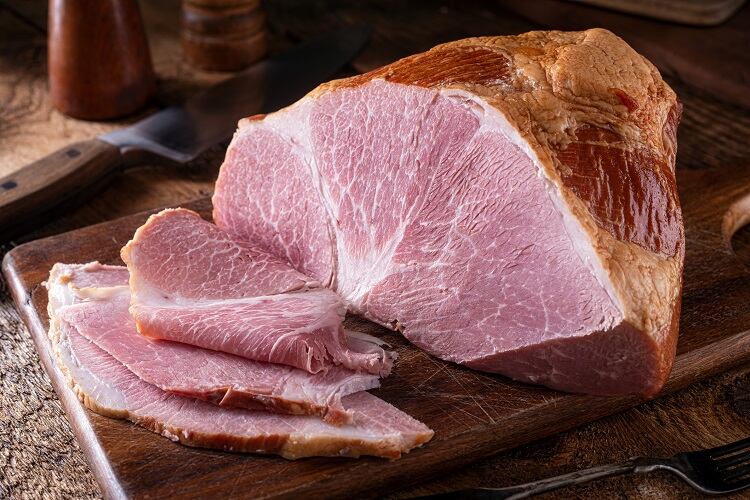
The Commission is particularly interested in traceability along the extensive meat supply chain, for example in organic meat production. “There is a lot of money to be made in organic farming, and it’s always when there is money to be made that it’s tempting to commit fraud,” said the project lead.
Therefore, under the mEATquality project, Spoolder and his team will apply technologies such as isotope and omics analyses, which may provide hints as to how much sunlight an animal was exposed to or what kind of soil it was raised on.
The researcher stressed such technologies are not his own, but he hopes to leverage them to establish a direct link between elements in pork and broiler meat, and extensification.
Achieving higher prices on-shelf
The mEATquality project relates to at least three elements of the European Green Deal: combatting food fraud, the improvements of animal welfare, and animal welfare in the context of food labelling.
Food labelling is particularly relevant, given that products associated with higher animal welfare standards should be eligible for a price premium. Food labels are one way this can be communicated to consumers.
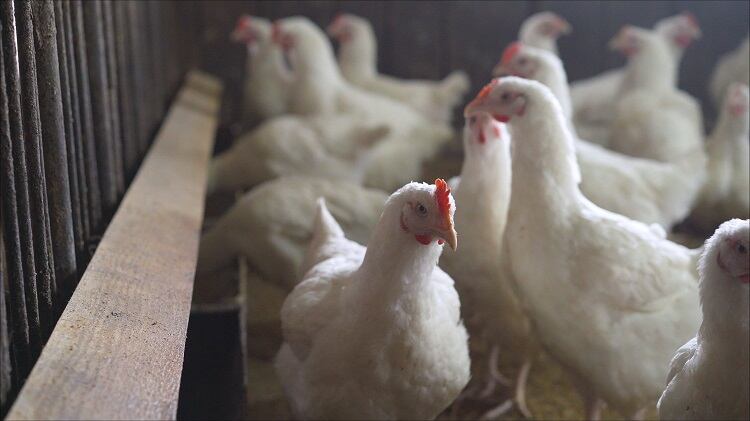
“This is also part of our project,” said Spoolder. “We are working with Carrefour, as well as with Danish and German social scientists and consumer panels, to find out what different stakeholders find ‘attractive’ in current animal welfare and eco labels.
“We want to know what they find interesting in them and how we should then communicate other aspects of extensification so that added value is actually obtained, so that producers can get that cost back from consumer and retail sales.”
The four-year project is expected to start this August. Additional project partners include the Liaison Centre for the Meat Processing Industry in the European Union (CLITRAVI), French poultry breeder Hubbard, and Dutch meat processing equipment manufacturer Marel.


